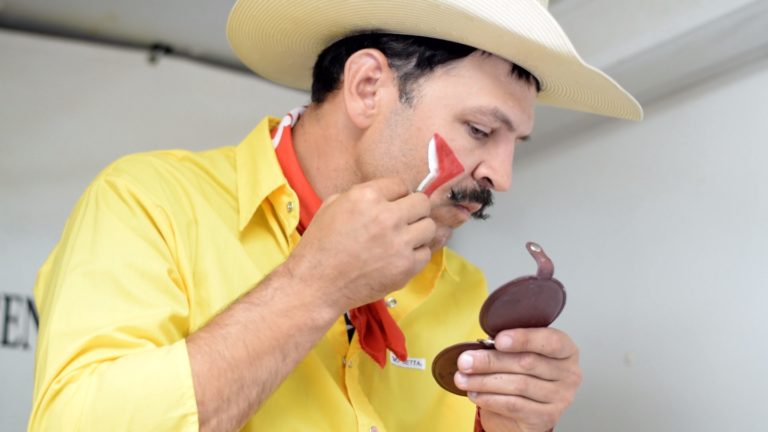On Black Friday 2012, four African-American teenagers stopped at a gas station to buy gum and cigarettes. One of them, Jordan Davis, argued with Michael Dunn, a white man parked beside them, over the volume of music playing in their car. The altercation turned to tragedy when Dunn fired 10 bullets at the unarmed boys, killing Davis almost instantly. The seamlessly constructed, riveting documentary film 3 1⁄2 MINUTES, TEN BULLETS explores the danger and subjectivity of Florida’s Stand Your Ground self-defense laws by weaving Dunn’s trial with a chorus of citizen and pundit opinions, and with Jordan Davis’ parents’ wrenching experiences in and out of the courtroom. As conversations about Trayvon Martin, Michael Brown, Walter Scott, Freddy Gray, and other victims of senseless violence play out on the national stage, 3 1⁄2 MINUTES, TEN BULLETS dives deep into the aftermath of Jordan Davis’ murder. This intimate story of unnecessary loss in the face of insidious racism promotes seeing one another as human beings, with the hope that compassion will lessen the inevitability of racial bias, disparity and violence. Directed by Marc Silver, the film won a Special Jury Award for Social Impact at the 2015 Sundance Film Festival; the Audience Award for Best Documentary at the RiverRun Film Festival; Youth Jury Award at Sheffield Doc/Fest; the Social Impact Award at the Greenwich International Film Festival; and Best Documentary Feature at the International Film Black Festival.
Summary info for schedule – will be hidden on film page
3 1/2 Minutes, Ten Bullets
98-minutes
Screening day / time
3 1/2 Minutes, Ten Bullets
3 1/2 Minutes, Ten Bullets
Filmmaker Notes:
Expanded self-defense laws such as “Stand Your Ground” are spreading across America. The film doesn’t directly address this, but it is the legal environment in which the shooting took place. Stand-your-ground laws take the common legal concept of the castle doctrine—“your home is your castle, which you may defend”—and extend it to anywhere people have a legal right to be. Under such laws, if a person reasonably fears they face death or serious injury, they can use deadly force to protect themselves without legal consequence. The accused can present self-defense to the jury even if the judge did not grant the accused “Stand Your Ground” immunity in any pre-trial hearing. This applies to law enforcement and members of the public, whether or not the perceived threat arises from implicit or express bias. Currently, 33 U.S. states, including Florida, have adopted some version of “Stand Your Ground,” also known as “Line in the Sand” and “No Duty to Retreat” laws. For me, the rise of such laws is symptomatic of the same pervasive attitudes that underpin things like pre-emptive strikes in U.S. foreign policy. Even though we can’t prove there are weapons of mass destruction, it’s OK for us to bomb; even though there is no proof Jordan had a gun, it’s OK for me to shoot. That is how the idea that it is OK to shoot an unarmed person permeates society. In making the film, I found there were multiple narratives in play. There was one playing out in the courtroom that didn’t mention race. There was another outside the courtroom where everyone knew this was about race. And Dunn had his own narrative; he didn’t think he shot an unarmed person. He believed Jordan was lying about having a weapon—hence the self-defense claim. But he only had that belief because of his existing bias. So you’re caught in these very strange loops of multiple narratives unfolding around you. Each person believes in their own truth, but there is obviously only one truth and that is that Jordan Davis didn’t have a gun.
Film details
Year(s) screened
- 2015



